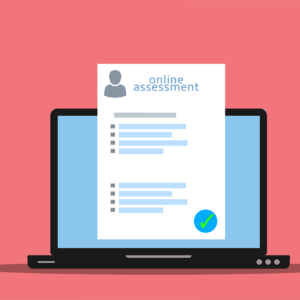Understanding the challenges of education evaluation is pivotal for a seamless H-1B journey. This comprehensive guide will delve into the nitty-gritty of this process, shedding light on its purpose, importance, the steps involved, and how a trusted credential evaluation agency like EEE OF AMERICA can simplify your journey.
» Apply for Education Evaluation.
Comprehensive Understanding of Education Evaluation
Education evaluation, in the context of H-1B visa applications, refers to a meticulous process designed to assess a candidate’s educational qualifications and relevant professional experience. It ensures that the foreign worker meets the educational requirements necessary for a specialized occupation under H-1B regulations.
The primary objective of education evaluation is to demonstrate the equivalence of a foreign worker’s academic credentials and work experience to a U.S. bachelor’s degree or higher in a field related to the H-1B job position.
Significance of Education Evaluation
In the intricate landscape of visa applications, education evaluation emerges as a cornerstone. It serves as irrefutable evidence that the applicant either possesses a U.S. bachelor’s degree or that their combined foreign education and work experience equates to a particular U.S. degree. Hence, a comprehensive evaluation is instrumental in fortifying the H-1B visa application and enhancing the chances of approval.
Delineating the Journey of a Successful Education Evaluation
Embarking on the journey towards obtaining an education evaluation might appear daunting. However, understanding the steps involved can significantly simplify the process.
1. Selection of a Trusted Credential Evaluation Agency
The first step involves choosing a trusted and reputable credential evaluation agency. These agencies possess a profound understanding of global educational systems and can accurately evaluate and translate your degrees and work experience into their U.S. equivalents.
2. Gathering and Submitting Required Documents
Upon selecting an evaluation agency, you need to gather and submit the necessary documents. These typically include your degree certificate, translated degree certificate by a certified translator, academic transcripts, translated transcripts, and detailed work experience documentation.
3. Undergoing the Evaluation Process
After submitting the required documents, the agency’s evaluators will review your educational and professional credentials. They will compare your foreign education and work experience to U.S. standards and produce a detailed report outlining the equivalency of your credentials.
4. Receiving the Evaluation Report
Upon completion, you will receive an evaluation report, which includes information about your educational background, equivalency determination, and relevant notes or explanations.
5. Including the Evaluation in Your H-1B Application
Finally, you need to include the education evaluation report in your H-1B visa application package. The evaluation report assists USCIS adjudicators in understanding the equivalency of your foreign education and its relevance to the specialized occupation you’re pursuing.
Warding Off Potential USCIS Challenges to Work Experience Evaluation
While education evaluations have been a standard procedure for H-1B applications, USCIS has been increasingly challenging these evaluations in recent years. Adopting several strategies can prevent potential USCIS challenges:
Embracing the 3:1 Rule
This rule states that three years of specialized training and/or work experience can be considered the equivalent of one year of college education. Therefore, an individual with at least twelve years of progressively responsible experience in a certain field, without any post-secondary education, could be deemed qualified for a specialty occupation under this rule.
Providing Detailed Work Verification Letters
USCIS emphasizes the importance of an official and authoritative proof of the beneficiary’s work experience. Experience letters from previous employers, clearly mentioning the dates worked, job duties performed, and the skills sets, are crucial.
Showcasing Progressive Work Experience
Progressive work experience is another significant component. This experience should indicate the individual’s advancement through their roles and duties with their previous employers.
Establishing Authority to Grant Credit
USCIS often challenges the authority of the professors offering expert opinion letters, as well as the universities with which they are affiliated. USCIS wants to verify that the professor’s university has a program dedicated to granting college-level credit and that the professor has a letter from the university indicating his or her authority to grant such credit.
The EEE OF AMERICA Advantage
EEE OF AMERICA is a comprehensive provider of foreign credential evaluations, offering all your immigration services needs in one trusted firm. Their foreign credential evaluation services include Education Evaluations, Work Experience Evaluations, Position Evaluations, Expert Opinion Letters, and Certified Translations.
Every year, EEE OF AMERICA assists thousands of clients, including immigration lawyers, corporate legal departments, educational institutions, recruiters, human resource professionals, boards and organizations, as well as individuals, achieve their goals.
Utilizing their services ensures a seamless journey towards obtaining your H-1B visa, providing you with peace of mind and confidence in the success of your application.
Conclusion
Navigating the complex landscape of education evaluation is pivotal for a successful H-1B journey. Understanding this process, its significance, and how to effectively navigate it can significantly streamline your visa application process.
By leveraging the services of a trusted credential evaluation agency such as EEE OF AMERICA, you can rest assured that your journey towards achieving your H-1B visa is in expert hands.




